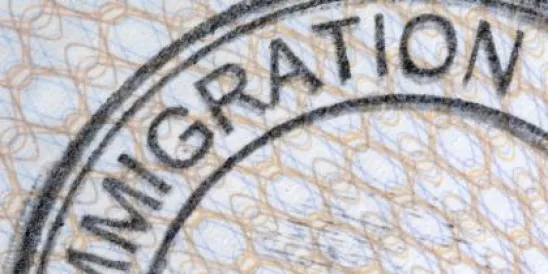The NAACP has filed a suit in federal district court in Maryland alleging that ending Temporary Protected Status for Haiti was racially discriminatory and part of a plan to reduce immigrants of color to the U.S. (Nat’l Ass’n for the Advancement of Colored People v. Dep’t of Homeland Sec., D. Md., No. 1:18-cv-00239, complaint filed Jan. 24, 2018). The plaintiffs allege violations of the Due Process and Equal Protection Clauses of the Constitution. They seek mandamus relief and a declaratory judgment to overturn the termination.
Finding that Haiti no longer met the requirements of the TPS program, Acting Secretary of Homeland Security Elaine Duke announced in November 2017 that Haitian TPS, which began in 2010 when an earthquake killed thousands on the island, would terminate on July 22, 2019. Although Haiti is one of the poorest countries in the world, the Administration cancelled TPS for the 50,000 to 60,000 Haitian beneficiaries because the country is no longer suffering directly as a result of the 2010 earthquake. Advocacy groups, members of Congress, and businesses that rely on these workers had argued for further extension of the TPS benefit.
The NAACP filed suit after disparaging remarks made by President Donald Trump about Haiti and African countries. The arguments in the suit are similar to those that have been made in response to Trump’s travel bans, which relied on the President’s remarks regarding individuals from Muslim countries. In addition to the termination of TPS, the Administration also decided that Haiti would no longer be eligible for H-2A and H-2B status.
The H-2 program brings unskilled workers to the U.S. to fill temporary, seasonal positions. DHS can remove any country from the H-2 program if it determines the country fails to meet requirements for continued designation. Haiti became eligible for these programs in 2012, primarily because this was seen as a way to bring some additional money into the Haitian economy and help with earthquake recovery. DHS stated that Haitians would no longer be eligible for H-2A and H-2B status because there were “high levels of fraud and abuse” by Haitians, as well as high rate of overstays (approximately 40 percent in 2016).
Haiti was not the only country to lose H-2 eligibility. Samoa and Belize were also removedfrom the eligible country list.



 />i
/>i

